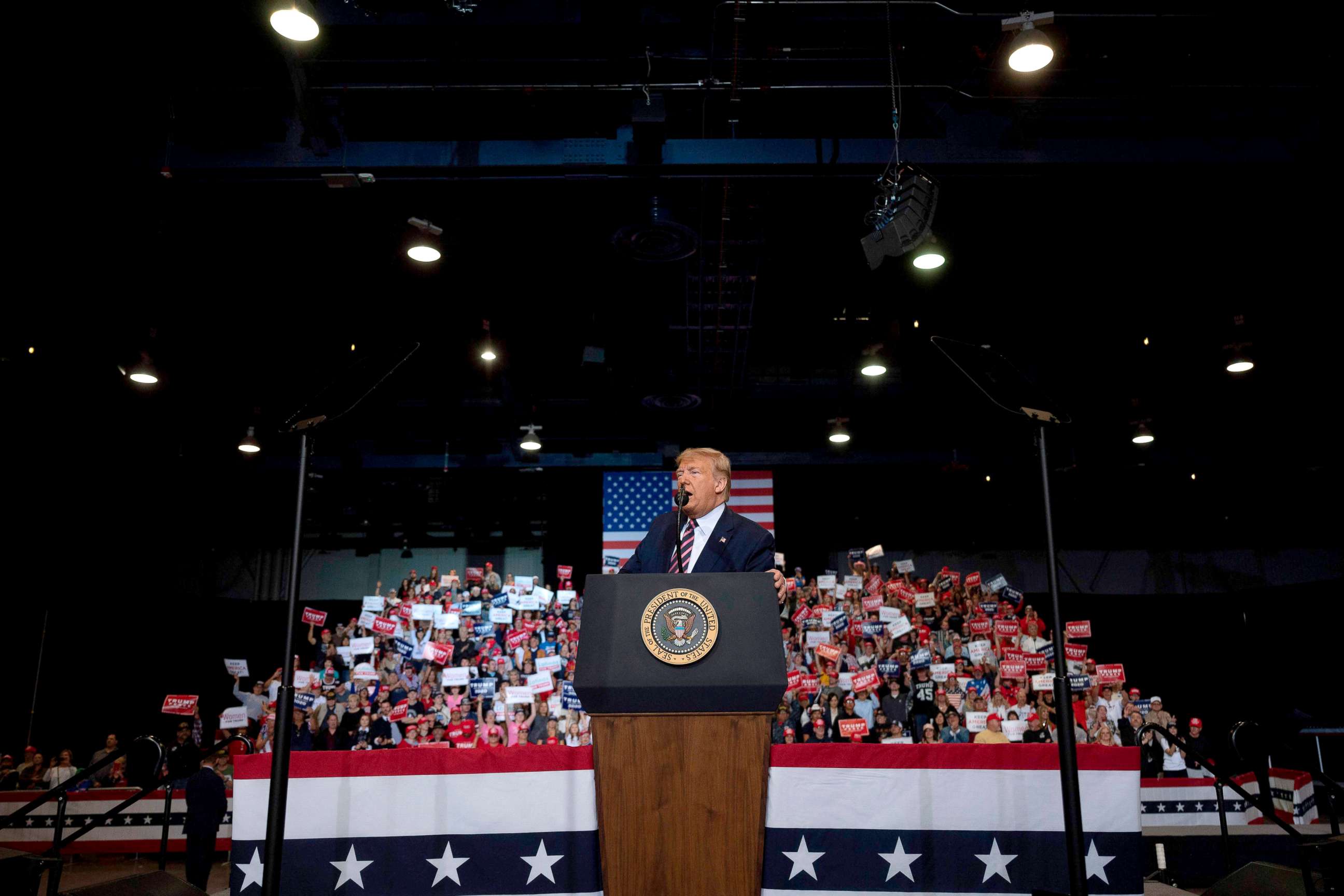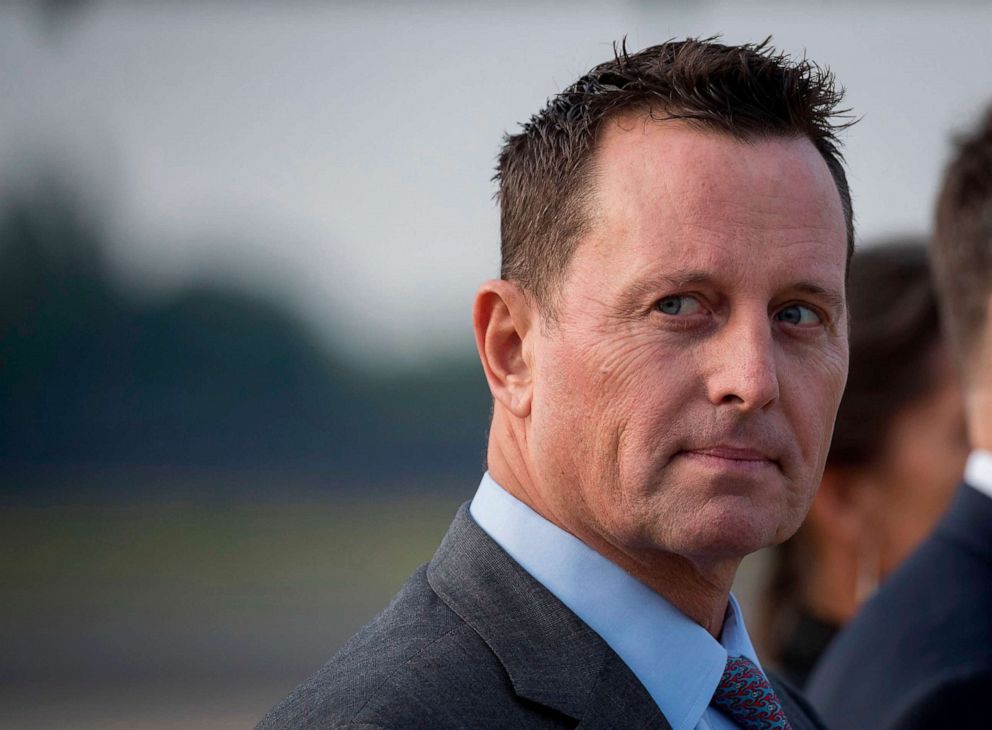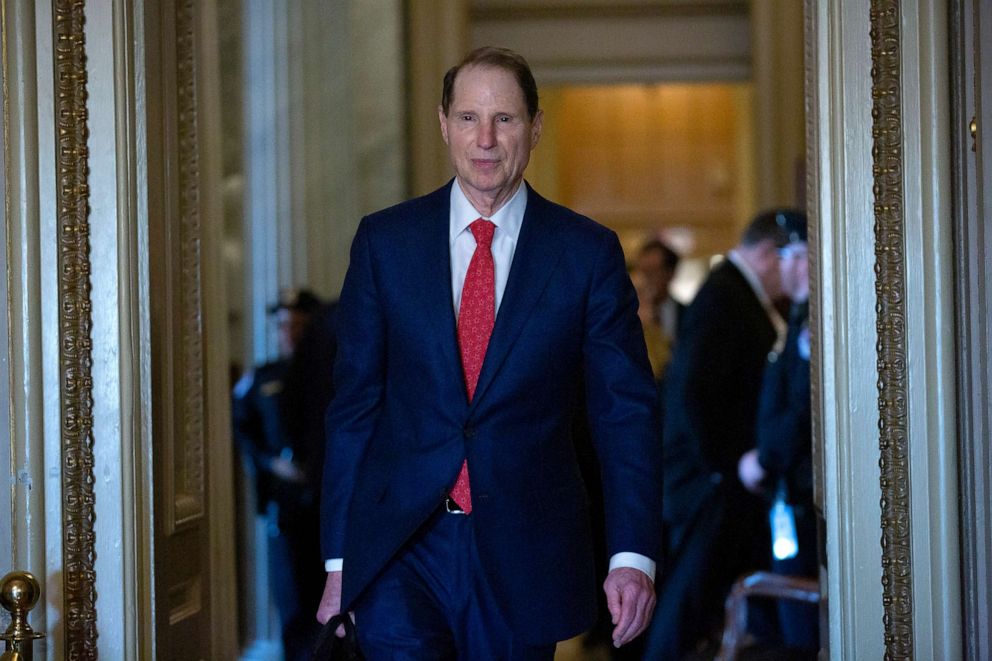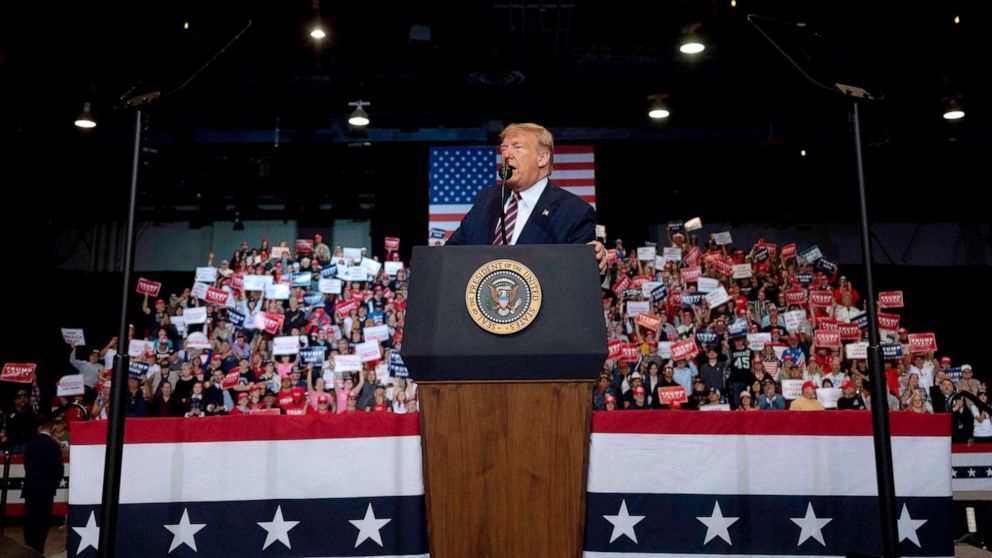Trump mocks intel finding Russia helping his reelection as Democratic 'disinformation'
President Donald Trump on Friday mocked reports the intelligence community has concluded Russia is interfering in the 2020 campaign to try to get him reelected, saying Democrats are trying to "start a rumor."
"I was told a week ago -- they said, 'you know they're trying to start a rumor,'" Trump said at one of his "Keep America Great" rallies in Las Vegas.
"It's disinformation -- that's the only thing they're good at, they're not good at anything else, the get-nothing, the do-nothing Democrats -- that Putin wants to make sure I get elected," he said.
Trump went on to recycle an argument he's made in the past -- that Russian President Vladimir Putin would rather see a Democrat in the White House, specifically Sen. Bernie Sanders, who calls himself a socialist democrat.

"Doesn't he want to see who the Democrats are gonna be? Wouldn't he rather have, say, Bernie? " Trump said.
Trump lashing out at what an official told the House Intelligence Committee comes as he's acting to reshape the intelligence community, long the target of his ire. His search for a permanent director of national intelligence is proving to be a formidable challenge, even as he claimed Friday to have "four great candidates."
Although Trump made a point of telling reporters on Air Force One Thursday that he was considering Rep. Doug Collins, one of the president’s leading defenders during the House impeachment inquiry, the Georgia Republican quickly declared Friday that he’s not interested in the nomination.
“This is not a job that’s of interest to me, and it’s not one that I’d accept,” Collins, who is running in a competitive primary for U.S. Senate, said on the Fox Business Network show 'Mornings with Maria.'
Trump has had substantial difficulty identifying a confirmable nominee since former DNI Dan Coats resigned Aug. 15, settling instead on two acting directors who did not require Senate confirmation, avoiding tough questions.
The critical post represents the country’s top-ranked intelligence official, with a range of responsibilities including the production of the Presidential Daily Brief, a top secret document summarizing the nation’s top intelligence threats. In Trump’s 1128 days in office, the White House has publicly advised of less than 300 of those formal briefings, although the president receives more frequent intelligence updates as dictated by world events.
After Coats resigned, Trump announced his intention to tap GOP Rep. John Ratcliffe, a former U.S. attorney and Trump loyalist who has also defended the president throughout the House impeachment hearings and Senate trial, for DNI.
But Ratcliffe was deemed not confirmable and the president quickly withdrew his name from consideration. Trump’s search ultimately settled on a temporary assignment for Joseph Maguire, the former director of the National Counterterrorism Center and retired vice admiral in the U.S. Navy who served as acting DNI from Aug. 16, 2019 until the president replaced him earlier this week.
Maguire’s tenure ended prematurely after the president learned that an intelligence official had told the House Intelligence Committee last week that Russia was once again interfering in the U.S. election process with the goal of trying to help Trump’s reelection prospects by spreading disinformation in support of the president on social media.
That briefing infuriated Trump, particularly due to the presence of House Intelligence Chairman Adam Schiff, the Democrat at the forefront of the failed effort to remove Trump from office. Trump worried Democrats would use the information from the briefing against him.
After learning of the congressional briefing, Trump summoned Maguire to the Oval Office last Friday for a "dressing down," according to the Washington Post -- and by Wednesday, the president decided to replace him with Ambassador to Germany Ric Grenell, a staunch Trump loyalist.

Now that Grenell has assumed the position – albeit on a temporary basis -- Democrats have decried his lack of intelligence experience, though the White House celebrated Grenell’s “years of experience” working with the Intelligence Community.
Grenell, who is keeping his job as Ambassador to Germany, has conceded he will not be nominated to fill the position on a permanent basis.
Trump has signaled he is considering four people for the post and he will announce a nominee in the coming weeks.
Another Republican reportedly under consideration is Utah Republican Rep. Chris Stewart, who also has a seat on the House Intelligence Committee. Stewart, who rose to the rank of major in the U.S. Air Force, has not commented on his prospects for DNI.
While Trump mocks the so-called Deep State during his campaign rallies and on Twitter, the president’s purge is also trickling down the ranks within the intelligence community.
Director of National Intelligence's Principal Executive Andrew Hallman is expected to soon depart, as is the ODNI’s General Counsel Jason Klitenic, sources familiar with the matter confirm to ABC News.
Kash Patel, a former senior National Security Council official is expected to move into a senior role under Grenell, according to sources. Patel is a controversial figure in Washington known for his efforts to discredit special counsel Robert Mueller’s Russia investigation while he was an aide to Rep. Devin Nunes, the ranking Republican on the House Intelligence Committee.
Although the intelligence community depends on career professionals to keep America safe from threats, the totality of the recent wave of personnel changes underscores the notion that the president is able to singularly shape its leadership by appointing officials who serve strictly at the pleasure of the president.
The Intelligence Reform and Terrorism Prevention Act of 2004, the law which created the DNI post, specifies that "Any individual nominated for appointment as Director of National Intelligence shall have extensive national security expertise."

Oregon Democratic Sen. Ron Wyden expressed doubt that Grenell meets the DNI’s basic job requirements for expertise in intelligence – even if he’s only on the job in an “acting” capacity.
“If there was any doubt that Donald Trump values unquestioning obedience over the safety of the American people, this appointment settles the question,” Wyden said. “Senators who take their oath of office seriously must oppose Trump's practice of dodging Senate confirmation practices to place unqualified individuals into highly sensitive national security posts.”
ABC News’ John Santucci and Katherine Faulders contributed to this report




